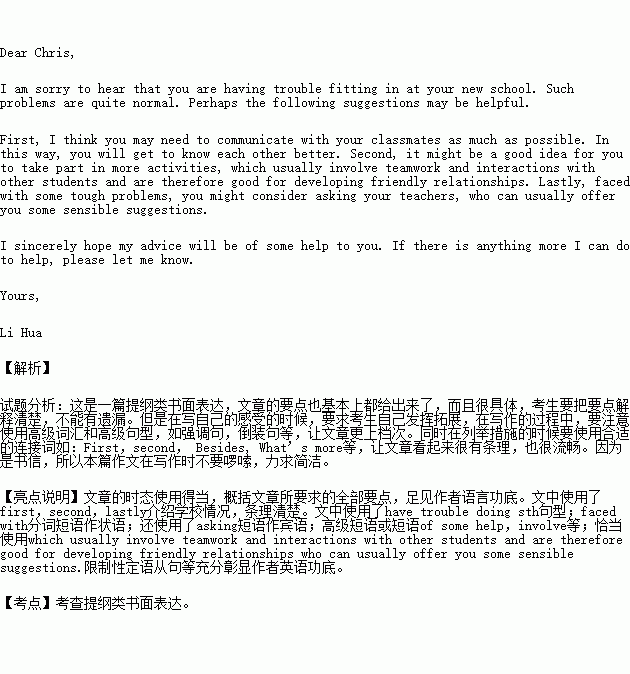题目内容
第二节书面表达
假设你是李华,你的英国笔友Chris刚刚转学,感到一切都很陌生。他在邮件中向你询问如何尽快融入新环境,请你根据以下信息回信。
1.多跟同学交流沟通;
2.积极参加学校活动;.
3.向老师寻求帮助。
注意:1.词数100左右;2.可适当增加细节,以使行文连贯;3.开头已给出,不计入总词数。
Dear Chris,
I am sorry to hear that you are having trouble fitting in at your new school.
_______________________________________________________________________
_______________________________________________________________________
_______________________________________________________________________
练习册系列答案
相关题目

